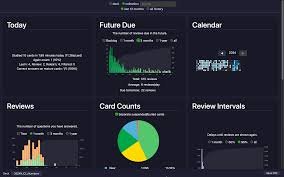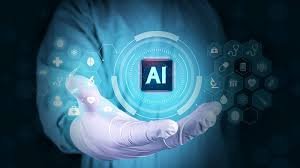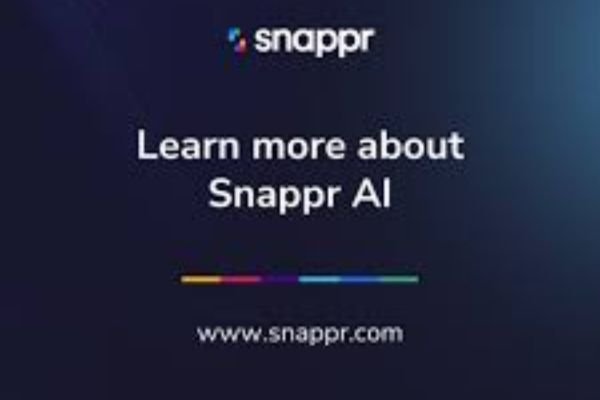Speaking from experience—being a medical student often feels like trying to drink from a firehose while juggling flaming scalpels. Between anatomy charts, pharmacology flashcards, and trying to remember which cranial nerve does what (hint: it’s always the vagus until it’s not), it’s a wonder med students sleep at all.
Enter the hero of modern education: AI apps. These pocket-sized professors don’t ask for coffee, don’t get tired, and won’t judge you when you forget what the hypothalamus does for the hundredth time. From instant diagnoses (for educational purposes only, don’t try this at home) to automated flashcards and study planners, AI apps are quickly becoming the unofficial sidekick to every stethoscope-wearing student.
So what’s the hype all about? Let’s dissect it—no lab coat required.
As AI continues to evolve, its integration into medical education promises to bridge gaps in training, making learning more accessible and effective. This article explores the key features of AI apps for medical students, their benefits, potential challenges, and the future of AI in medical education. By understanding these tools, students and educators can leverage AI to optimize learning outcomes and prepare for a tech-driven healthcare landscape.
Medical students today have access to powerful AI-powered tools that enhance learning, streamline research, and improve clinical knowledge. Here are the top 7 AI apps for medical students that are revolutionizing medical education:
1. AnkiDroid (with AI Add-ons)

Why it’s great: Anki is a legendary spaced repetition flashcard app, now enhanced with AI-driven scheduling to optimize memory retention. Medical students can use pre-made decks (like AnKing) or create custom cards with AI-generated mnemonics.
Key Features:
✔ Adaptive learning algorithms
✔ AI-powered flashcard recommendations
✔ Syncs across devices
2. Amboss
Why it’s great: Amboss combines a medical knowledge library with AI-powered Q&A explanations, making it perfect for USMLE and clinical rotations. Its AI highlights high-yield topics based on your weak areas.
Key Features:
✔ AI-generated study plans
✔ Interactive clinical case simulations
✔ Smart search for quick references
3. Osmosis

Why it’s great: Osmosis uses AI video recommendations and personalized quizzes to reinforce medical concepts. It’s ideal for visual learners and integrates with Anki.
Key Features:
✔ AI-curated video lessons
✔ Adaptive practice questions
✔ Track progress with AI insights
4. ChatGPT for Medicine (Custom GPTs)
Why it’s great: OpenAI’s ChatGPT now offers medical-specific GPTs that help explain complex topics, generate case summaries, and even assist with research paper drafting.
Key Features:
✔ AI-powered medical explanations
✔ Case study generation
✔ Research paper assistance
5. Figure 1 (now with AI Diagnostics)
Why it’s great: Figure 1 is a crowdsourced medical image app that now includes AI-assisted diagnostics. Students can upload cases (anonymized) and get AI-generated differential diagnoses.
Key Features:
✔ AI-powered image recognition
✔ Peer discussions with verified doctors
✔ Real-world case studies
6. MedSchool AI

Why it’s great: This AI-powered study assistant generates practice questions, summaries, and mnemonics tailored to your curriculum. It’s like having a virtual tutor.
Key Features:
✔ AI-generated study notes
✔ Custom quiz builder
✔ USMLE/NBME-style questions
7. UpToDate (AI-Enhanced)
Why it’s great: UpToDate is a trusted clinical decision tool that now integrates AI summaries and fast evidence-based answers, perfect for rotations and exams.
Key Features:
✔ AI-generated key takeaways
✔ Instant literature reviews
✔ Treatment algorithm suggestions
Key Features of the AI App for Medical Students
Interactive Learning & Virtual Tutoring
One of the most valuable aspects of AI apps for medical students is their ability to function as virtual tutors. These apps use natural language processing (NLP) to break down complex medical topics into digestible explanations. For instance, a student struggling with cardio physiology can ask the AI to simplify concepts, provide analogies, or generate visual aids. The AI adapts to the user’s learning style, offering customized study recommendations based on performance analytics.
Unlike static textbooks, AI-powered platforms engage students through interactive quizzes, dynamic diagrams, and instant Q&A support. Some apps even integrate with medical databases like PubMed or UpToDate, ensuring that explanations are evidence-based and up-to-date. This real-time access to knowledge accelerates learning and reduces the time spent searching for reliable sources.
Clinical Case Simulations
Medical education heavily relies on clinical exposure, but students often face limited opportunities to practice diagnosis and treatment planning. AI apps solve this problem by generating virtual patient cases with varying levels of complexity. These simulations mimic real clinical scenarios, requiring students to take patient histories, order tests, interpret results, and make treatment decisions.
The AI provides real-time feedback, explaining why certain diagnoses are correct or incorrect. Some advanced apps even adjust case difficulty based on the student’s performance, ensuring continuous challenge and growth. This feature is particularly useful for preparing for clinical rotations and board exams like the USMLE or PLAB, where case-based reasoning is crucial.
Smart Flashcards & Spaced Repetition
Memorization is a significant part of medical education, but passive repetition is often inefficient. AI-powered flashcard apps use spaced repetition algorithms (like Anki but enhanced with AI) to optimize recall. The system tracks which facts a student struggles with and prioritizes them in future review sessions.
Additionally, some AI apps generate flashcards automatically from lecture notes or textbooks, saving students hours of manual entry. The adaptive nature of these tools ensures long-term retention, making them indispensable for mastering vast subjects like pharmacology or microbiology.
Medical Image Analysis Assistance
Interpreting medical images—such as X-rays, CT scans, and MRIs—is a critical skill for future doctors. AI apps now include modules that help students analyze radiological findings. Some apps use machine learning to highlight abnormalities in images, while others provide quizzes where students must identify pathologies.
This feature not only aids in learning but also builds confidence before entering radiology rotations. Some platforms even compare student interpretations with AI-generated reports, offering detailed feedback on diagnostic accuracy.
Voice-Activated Medical Q&A
Medical students often have quick questions while studying but may not always have access to professors or peers. AI apps with voice recognition allow students to ask questions aloud and receive instant, reliable answers. For example, a student can say, “Explain the mechanism of beta-blockers,” and the AI will provide a concise yet detailed response.
This feature is particularly useful during busy clinical rotations or late-night study sessions when immediate clarification is needed. Integration with trusted medical sources ensures that answers are accurate and clinically relevant.
Exam Preparation & Performance Tracking
Preparing for high-stakes exams like the USMLE, MCAT, or NBME requires structured study plans and self-assessment. AI apps offer tailored question banks that adapt to the student’s strengths and weaknesses. The system analyzes performance trends, predicts exam readiness, and suggests focus areas.
Detailed analytics track progress over time, showing improvement in specific subjects or question types. Some apps even simulate full-length mock exams under timed conditions, helping students build stamina and test-taking strategies.
Benefits of Using AI Apps in Medical Education
1. Saves Time with Efficient Study Tools
Medical students face an overwhelming volume of information, often struggling to balance coursework, clinical rotations, and exam preparation. Traditional study methods—like manually creating flashcards or sifting through dense textbooks—can be time-consuming and inefficient. AI-powered apps streamline this process by:
- Providing instant access to information through smart search functions and voice-activated queries, eliminating hours spent searching through references.
- Auto-generating study materials, such as summaries, flashcards, and quizzes, based on lecture notes or textbooks.
- Optimizing study schedules using algorithms that prioritize high-yield topics and adjust based on progress.
By automating these tasks, AI allows students to focus on deep comprehension rather than rote memorization, freeing up valuable time for clinical practice or self-care.
2. Enhances Diagnostic and Clinical Reasoning Skills
Medical education isn’t just about memorizing facts—it’s about learning how to think like a doctor. Passive learning (e.g., reading or watching lectures) falls short in developing the critical decision-making skills required in real clinical settings. AI apps bridge this gap by:
- Simulating dynamic patient cases where students must take histories, interpret labs, and make treatment decisions—just like in real practice.
- Providing real-time feedback on diagnostic accuracy, explaining why a chosen treatment might be incorrect or suboptimal.
- Introducing rare or complex cases that students might not encounter during limited clinical rotations.
Repeated exposure to these scenarios sharpens pattern recognition, differential diagnosis skills, and confidence in clinical judgment.
3. Personalized Learning Experiences
Every medical student has unique strengths, weaknesses, and learning paces. Traditional classroom settings often struggle to accommodate individual needs, but AI apps excel in personalization by:
- Analyzing performance data to identify weak areas (e.g., cardiology, pharmacology) and tailoring study plans accordingly.
- Adjusting question difficulty in real-time, ensuring students are neither bored by easy material nor overwhelmed by advanced topics.
- Adapting to learning styles, whether through visual aids, interactive cases, or concise summaries.
This customized approach ensures that students spend time efficiently, focusing on what they need to learn rather than what’s generically assigned.
4. Improves Retention Through Adaptive Learning
The “forgetting curve” is a major challenge in medical education—students cram vast amounts of information, only to forget much of it after exams. AI combats this by leveraging evidence-based learning techniques:
- Spaced repetition algorithms (like Anki, but AI-enhanced) schedule reviews at optimal intervals to maximize long-term retention.
- Active recall prompts force the brain to retrieve information, strengthening memory pathways.
- Interleaved practice mixes topics (e.g., cardiology + renal physiology) to improve conceptual connections.
These methods ensure knowledge sticks, reducing the need for last-minute cramming and improving readiness for board exams.
5. Accessible Anytime, Anywhere
Medical training is demanding, with unpredictable schedules and limited downtime. AI apps provide flexibility by:
- Mobile compatibility allows study during commutes, between rotations, or even in hospital cafeterias.
- Offline functionality for areas with poor internet access.
- Cross-device syncing, so progress on a tablet, phone, or laptop is always up to date.
This accessibility supports continuous learning without being tied to a library or classroom.
6. Cost and Equity Considerations
While AI apps offer immense benefits, their cost can be a barrier. Premium features (e.g., advanced question banks, virtual tutors) often require subscriptions, which may exclude students with limited financial resources. To address this:
- Institutions can negotiate group licenses or subsidize costs for students.
- Developers could offer tiered pricing (e.g., free basic versions with paid upgrades).
- Open-source or nonprofit initiatives (like MedSchool+ AI) could provide high-quality, low-cost alternatives.
Potential Challenges & Considerations
Dependence on AI vs. Traditional Learning
While AI apps provide an efficient and interactive way to learn, there is a risk that students may become overly reliant on them, neglecting traditional learning methods. Medical education has long emphasized the importance of textbooks, peer discussions, and hands-on clinical experience—elements that AI cannot fully replicate. For example, studying from physical textbooks or engaging in case-based discussions with classmates fosters critical thinking and collaborative problem-solving skills that AI-driven learning may not fully develop.
Additionally, medicine is not just about memorizing facts; it involves human interaction, empathy, and ethical decision-making. AI can simulate patient cases, but it cannot replace the nuanced communication skills gained through real patient encounters. If students rely too heavily on AI for learning, they may miss out on developing these essential competencies. Therefore, medical schools and students must strike a balance—using AI as a supplemental tool rather than a complete replacement for conventional education.
A blended learning approach, where AI aids in knowledge acquisition while traditional methods reinforce clinical reasoning and interpersonal skills, would be most effective. Educators should guide students on how to integrate AI tools without diminishing the value of human mentorship and peer learning.
Ensuring Accuracy and Reliability
One of the biggest concerns with AI-generated medical content is its accuracy. Unlike peer-reviewed textbooks or established medical guidelines, AI responses are based on training data, which may sometimes include outdated or incorrect information. For instance, if an AI model was trained on sources that contain errors, it could inadvertently propagate those mistakes to students. Given that medical knowledge evolves rapidly, AI apps must be continuously updated to reflect the latest evidence-based practices.
To mitigate this risk, developers must collaborate closely with medical professionals—doctors, researchers, and educators—to validate AI-generated content. Some AI platforms already integrate with trusted medical databases (e.g., UpToDate, PubMed) to ensure reliability. However, even then, there should be mechanisms for users to flag inaccuracies and for developers to correct them promptly.
Another challenge is bias in AI algorithms. If the training data lacks diversity—for example, underrepresenting certain demographics in case studies—the AI may provide skewed or incomplete information. Medical AI must be rigorously audited to ensure fairness and inclusivity in its learning recommendations.
Privacy and Data Security Concerns
Medical study apps collect vast amounts of sensitive data, including user performance metrics, study habits, and even personal health-related queries. If this data is not properly secured, it could be vulnerable to breaches, exposing students to privacy risks. Given that many medical students will eventually handle patient data professionally, they must also be aware of cyber security best practices.
To protect user data, AI apps must implement robust encryption, anonymization techniques, and strict access controls. Compliance with regulations such as HIPAA (in the U.S.) or GDPR (in Europe) is essential for apps handling health-related information. However, not all countries have stringent data protection laws, so students should carefully review an app’s privacy policy before using it.
Another concern is third-party data sharing. Some free AI apps monetize user data by selling it to advertisers or research firms. Students should opt for reputable, transparent platforms that prioritize user privacy over profit. Medical institutions endorsing AI tools should also conduct thorough security assessments before recommending them to students.
Cost and Accessibility
While AI apps offer tremendous benefits, their cost can be a barrier for many students. High-quality medical education tools often require subscriptions, and premium features (such as advanced question banks or personalized tutoring) may come at an additional price. For students already burdened by tuition fees and living expenses, these costs may be prohibitive.
The digital divide further exacerbates accessibility issues. Students in low-resource settings or developing countries may lack reliable internet access or compatible devices, limiting their ability to use AI-powered learning tools. This creates an inequity where only privileged students can benefit from cutting-edge educational technology.
To address this, developers could consider tiered pricing models, institutional licenses, or partnerships with medical schools to subsidize costs. Open-source AI tools and free versions with essential features could also help democratize access. Additionally, universities and governments should invest in digital infrastructure to ensure all students can leverage AI for learning.
Conclusion
AI apps for medical students represent a groundbreaking shift in how future doctors learn and train. By offering personalized tutoring, clinical simulations, and smart study tools, these apps address many challenges in medical education. Students can now access instant explanations, practice diagnoses in risk-free environments, and optimize their exam preparation with data-driven insights.
However, while AI provides immense benefits, it should complement—not replace—traditional learning methods. Medical schools and students must strike a balance, ensuring that technology enhances rather than overshadows critical thinking and human interaction in medicine.
As AI continues to evolve, its role in medical education will only expand. Embracing these tools today prepares students for a future where AI is integral to healthcare. By leveraging AI apps wisely, the next generation of doctors can achieve greater efficiency, deeper understanding, and better patient outcomes.






